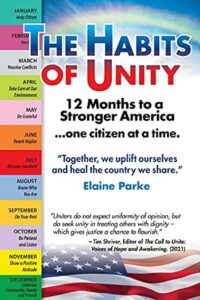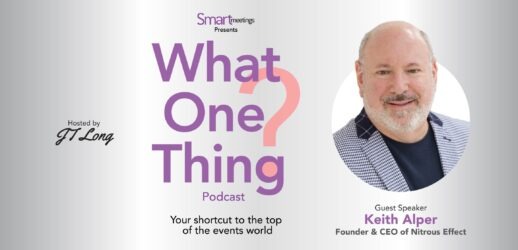Take charge of your ‘mental nutrition’ to dial down the rage
Have you noticed? Or, more likely, how could you not? America is a pretty angry place these days. The news is full of rage—angry confrontations at formerly boring civic meetings over things that were once debated respectfully, at restaurants and emergency rooms where Covid protocols are resisted, the shouting amplified like an echo chamber by social media as angry factions thump their collective chests and vilify their supposed foes, even neighbors or family.
You may be flying again after a hiatus of many months and noticed what’s different about airports now. It’s not only the masking and (hopefully) distancing, but also those warning signs posted prominently: it’s a federal crime to mouth off (or worse) to a TSA employee or threaten an airline crewmember.
Even driving seems more of a combat sport these days. While road rage is not new, it used to be less frequent. Now, it seems, more and more of us think we’re in a virtual reality video game instead of on an interstate.
And as a meeting professional, you certainly don’t look forward to having to police Covid safety at future events and meetings. One person acting out can take the meeting’s course in a whole new direction. The very thought of it is enough to make you…angry.
 “It’s way past time for us to take a collective breath and treat others with dignity, respect and civility,” says Elaine Parke, author of The Habits of Unity: 12 Months to a Stronger America…One Citizen at a Time. She is certified in conflict management, violence prevention and meditation, and her habit-forming model, which we’ll get to in a moment, was recognized by London Institute for Social Inventions. “It’s urgent that we make this shift now,” she declares.
“It’s way past time for us to take a collective breath and treat others with dignity, respect and civility,” says Elaine Parke, author of The Habits of Unity: 12 Months to a Stronger America…One Citizen at a Time. She is certified in conflict management, violence prevention and meditation, and her habit-forming model, which we’ll get to in a moment, was recognized by London Institute for Social Inventions. “It’s urgent that we make this shift now,” she declares.
More: 3 Mindfulness Mantras
Parke isn’t just trying to restore calm and order to a deeply divided nation. And she isn’t just retooling what’s long been known as anger management. No, her attempt is to help us take personal charge of what she calls our “mental nutrition.” Much in the same way we have learned to make conscious and healthy choices in the food we eat, we need to make nutritious mental choices every day.
Like good eating habits, good mental habits can rewire our outlooks and priorities.
Others have seconded this approach. Mental health professional Megan Hays, a clinical psychologist at University of Alabama at Birmingham, points out that behaving aggressively and bottling up anger are linked to hypertension and coronary artery disease, and recommends enjoyable “cool down” strategies—like being creative (drawing or painting, for instance), tackling a productive chore, taking a brisk walk or cycle, even cranking up the music and dancing and singing negative emotion away.
More: Concentration Makes for a More Productive Day
Parke’s way is to offer “one-magic-minute-a-day” motivationals to hardwire healthy mental choices into habits. She divides the year into monthly themes for mental nutrition.
January: Help others
February: You count
March: Resolve conflicts
April: Take care of our environment
May: Be grateful
June: Reach higher
July: Become involved
August: Know who you are
September: Do your best
October: Be patient and listen
November: Show a positive attitude
December: Celebrate community, family and friends
Following her regimen, Parke promises, will make you more positive, centered and respectful, which will draw others to you and improve your relationships. If these ripples multiply and expand, the emotional climate in our country will surely improve and make it easier to seek common ground. You will feel healthier, and America can again be “a welcoming, affirming melting pot—instead of a stewing pot.”




